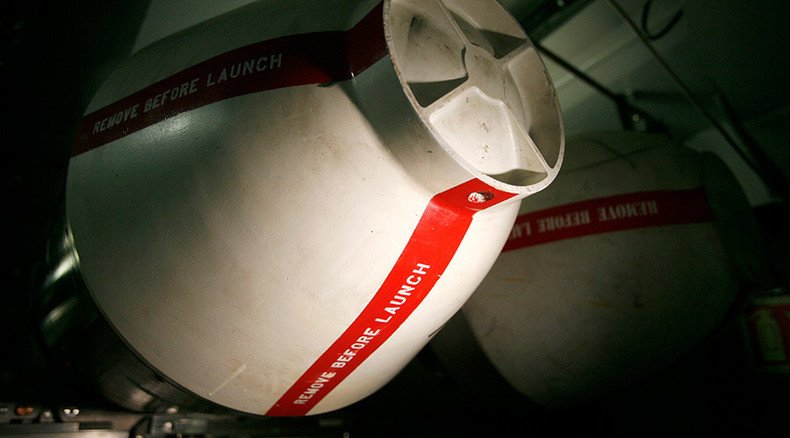Nukes factory fails to show radioactive waste management plan – regulator

A nuclear weapons factory in the UK has been censured by regulators for failing to show a long-term plan for handling radioactive waste.
The Atomic Weapons Establishment (AWE) in Aldermaston was given an improvement notice earlier this month by the Office for Nuclear Regulation (ONR).
The ONR, an independent regulator, said the notice gives AWE one year to come up with solutions for how it will handle nuclear waste.
AWE, which is partly owned by Lockheed Martin, has been in special measures for the past three years for failing to improve its safety performance.
The nuclear weapons factory also faces further action for failing to meet legal obligations to treat radioactive waste by 2014, according to a report published by the ONR in July.
I remember seeing @jeremycorbyn speaking at @CNDuk demonstration at Aldermaston nuclear base in '07 he was passionate & impressive then too.
— Danny (@DannyDonnelly1) August 16, 2015“The Improvement Notice served on AWE earlier this month is a key step in a program aimed at securing hazard reduction of the entirety of AWE’s Higher Active radioactive Waste and relates to its long-term management,” ONR wrote in its August update.
“ONR is satisfied that the current conditions under which the waste is stored are acceptable and do not give rise to significant risk to the public or the workforce.
“However, ONR considers that AWE has failed to demonstrate that its long-term strategy for managing Higher Active radioactive Waste reduces the future risk to the public and employees so far as reasonably practicable, throughout its anticipated storage life at Aldermaston,” it added.
AWE has until September 2016 to come up ways to handle nuclear waste in the long-term, at which point ONR will consider whether further enforcement is needed.
Speaking to RT, Campaign for Nuclear Disarmament (CND) chair Dave Webb said AWE continues to profit from its weapons program despite safety concerns.
“The Atomic Weapons Establishment’s latest failure to adequately plan for the management of radioactive waste is a scandal,” he said.
“This hugely expensive project, costing taxpayers £634 million, has almost no democratic oversight. The only thing we can be sure of is huge profits for shareholders whilst the ongoing failures present an enormous health and safety risk to the general population.”
Webb added: “This information needs to made publicly available so that it can inform a proper debate about the future of the UK's nuclear arsenal and the government’s proposed Trident renewal.”
RT contacted ONR to ask what time-frame they use to define “long-term” with respect to nuclear waste management.
The regulator said there was no specific time-frame, but that it was dependent on a range of factors.
“AWE needs to continue to demonstrate the safety of the waste by means of an extant safety case with an appropriate maintenance and inspection regime, with waste conditioning to take place prior to deterioration in the condition of the waste containers with safety consequences,” Communications Director Claire Lyons said.
“Hence, the reference to ‘long-term’ is not specific in this context and is dependent on a range of factors. ONR continues to regulate waste management on the site in accordance with conditions attached to the nuclear site license,” she added.
This is the second time this year that AWE Aldermaston has been reprimanded for failing to meet safety obligations.
The facility, which manufactures warheads for Britain’s Trident nuclear weapons program, was placed in special measures for the third year in a row in July.
ONR listed shortages of skilled personnel, the aging plant and delays in building new facilities as reasons for failure.
“We will not seek prosecution given that we are satisfied with waste storage conditions in the short-term and that the safety of the public and the workforce has not been affected,” ONR said.
"However, we will consider further proportionate regulatory action to achieve the required hazard reduction in reasonably practicable timescales.”
AWE responded to the July criticism by stating that it supported ONR’s findings.
“Delivering safe and secure operations is a core priority for AWE and it fully supports the ONR's focus on continuing open dialogue in support of delivering safety improvements,” a spokesperson said.












